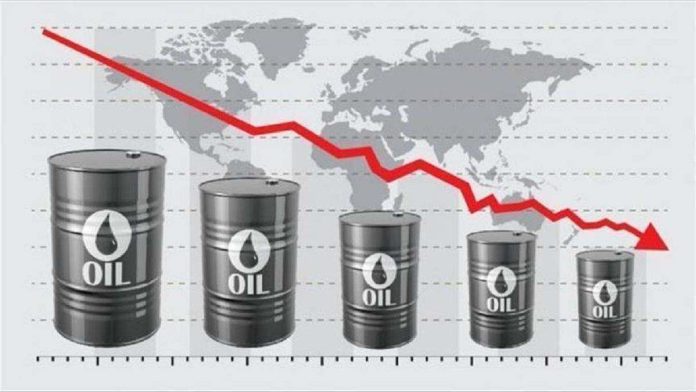Oil prices dropped sharply to $63 per barrel on Monday, pressured by escalating global trade tensions triggered by the United States and a looming supply glut as OPEC+ signals increased production. The price dip follows the U.S. administration’s decision to impose sweeping new tariffs, sparking a retaliatory trade war with China and other major economies.
Brent crude fell 3.8% to $63.20 per barrel, down from $65.84 at the previous session, while U.S. West Texas Intermediate (WTI) declined 0.8% to settle at $65.74.
Energy analysts warn that the escalating trade conflict could significantly weaken global demand for crude, particularly as China—the world’s largest oil importer—struggles with economic headwinds. At an investor forum, experts said crude demand may falter in the coming weeks, especially with Saudi Arabia signaling a price cut on May deliveries to Asian buyers.
Brent crude, the global benchmark, tumbled to a four-year low, exacerbated by OPEC+’s recent announcement to unwind some of its voluntary output cuts. On April 3, the group confirmed plans to boost production by 411,000 barrels per day (bpd) in May, scaling back part of its 2.2 million bpd cut. The announcement triggered Brent’s largest single-day loss since October 2023, plunging over 5% to close at $69.63. U.S. WTI also fell 5.6% to $66.33.
China’s firm response to U.S. tariffs included a new 34% duty on all U.S. imports, effective April 10. The Chinese Foreign Ministry issued a scathing statement, accusing Washington of “sacrificing the legitimate interests of all countries in service of America’s hegemonic ambitions,” and violating World Trade Organization rules.
Global markets reacted swiftly. On Monday, Asian equities took a nosedive. Hong Kong’s Hang Seng Index led the losses, plunging 12.46% to 20,002 points—its steepest single-day decline in 16 years. The Asia Dow dropped 9.25% to 3,636.19, while Japan’s Nikkei 225 fell 7.68% to 31,187.50. China’s Shanghai Composite declined 8.48% to 3,058.74, and India’s Sensex lost 3.76% to close at 72,531.45.
Meanwhile, eight OPEC+ members—Saudi Arabia, Russia, Iraq, the UAE, Kuwait, Kazakhstan, Algeria, and Oman—agreed last Thursday to accelerate their production ramp-up, committing to the 411,000 bpd hike in May, effectively compressing three months of planned increases into one.
In response, Saudi Arabia—the world’s top oil exporter—lowered its official selling price for crude deliveries to Asia in May to a four-month low, a move that analysts say could further pressure global oil prices in the near term.
As both supply risks and geopolitical uncertainty rise, traders expect continued volatility in the oil market.













